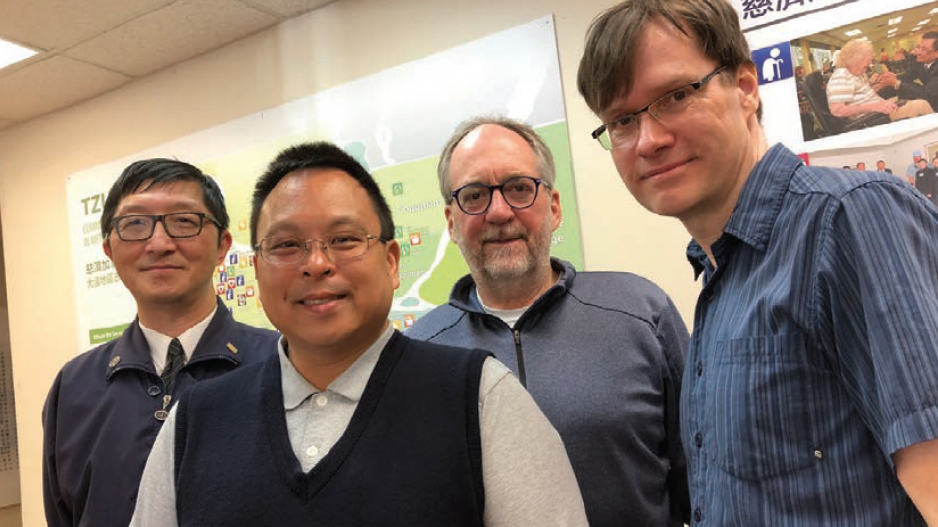A Vancouver charity group with strong ties to B.C.’s traditional Chinese-medicine industry and to the local Chinese-speaking and Buddhist communities is reaching out to the mainstream community in an attempt to broaden its appeal beyond its traditional demographic.
Vancouver-based Tzu Chi Foundation Canada, which also owns the local International College of Traditional Chinese Medicine, will hold its first English-language open house at its headquarters in the Marpole neighbourhood on May 27 to drum up more volunteering and student-enrolment interest for the organization.
The move signifies one of the higher-profile attempts by a traditionally cloistered organization to reach outside its established base in one of Metro Vancouver’s ethnic communities to adapt to changing demographics.
“Our focus this time is on non-Chinese-speaking communities, and choosing English is just one way we are showing who we are as a charity and where we want to go,” said Tzu Chi public relations director Tom Torng, who noted the group, which stems from a Buddhist movement based in Taiwan, draws most of its support from a Chinese-speaking community that is aging.
Of the group’s 3,000 members in B.C., Torng estimates that participants outside the Chinese ethnic group rank in the single digits – something Tzu Chi wants to change so as to continue to perform its services, such as volunteering at cooking meals for Salvation Army events for the homeless, senior care services, food bank operation and the administration of its traditional Chinese medicine (TCM) school and clinics throughout the Lower Mainland.
“We want to think outside the box in telling our story.”
Torng added that the open house will be conducted in English, with kiosks showcasing the college’s TCM practices and the foundation’s charity efforts.
“We are helping people of all backgrounds, such as our clinics at the Sumas First Nation and at Vancouver’s Raven Song Community Health Centre. So we want to break the image of how people see us – as a religious-based group – to all our potential volunteers and donors.”
Other Vancouver non-profit groups with traditional “anchor” support from certain ethnic communities have also tried to broaden their appeal. The most prolific of the bunch is immigrant settlement services stalwart SUCCESS, which was founded in 1973 to serve a largely Cantonese-speaking overseas Chinese community, but has since evolved twice – once in the 1990s to accommodate increasing immigration from Taiwan, then again in the 2000s for the new wave of newcomers from mainland China.
In addition to expanding services to these two Mandarin-speaking groups, SUCCESS has also evolved in recent years to take on clients in Korean and South Asian communities, as well as groups such as unemployed youth and aspiring entrepreneurs.
Tzu Chi’s 2016 acquisition and continuing operation of the International College of TCM has been part of the diversification process. College president Laina Ho said the school, which was founded in 1986, has a student base consisting of about 70% Canadian citizens of all backgrounds and about 30% international students, with Latin America being the most frequent point of origin.
Ho said that while the school is trying to draw more awareness and students from the open house, it is also betting that its position as one of the more diversified branches of Tzu Chi can help the volunteering branch achieve a similar transformation.
“Our whole mission for the open house is for people to understand our brand,” Ho said, adding that TCM has benefited from mainstream attention on treatments such as acupuncture, acupressure and – as recently highlighted by Olympic swimming champion Michael Phelps at the 2016 Rio Games – cupping.
“The foundation itself doesn’t have that diverse attention yet – we still have a large number of Chinese-legacy volunteers – so we want that cross-pollination of people who are interested in TCM and Tzu Chi’s other offerings.”
One of the Tzu Chi volunteers helping to organize the event is 69-year-old Larry Birckhead, who has been volunteering at the group for almost a decade. He said none of his non-Chinese friends and family members knew of Tzu Chi when he told them where he was volunteering – a sign, he said, of how much work needs to be done.
“Westerners are not known to volunteer for non-western causes on a large scale,” Birckhead said. “But for me, it is important to be surrounded by people who are not like me…. It’s just that we haven’t targeted the English-speaking population. When I volunteered at the food bank with Tzu Chi, I was the only non-Chinese face there, and I do feel some people who come in were more comfortable talking to me – the walls come down, so to speak. We are hoping for more connections like that, and that gradually, we make efforts on both sides to connect.” •




